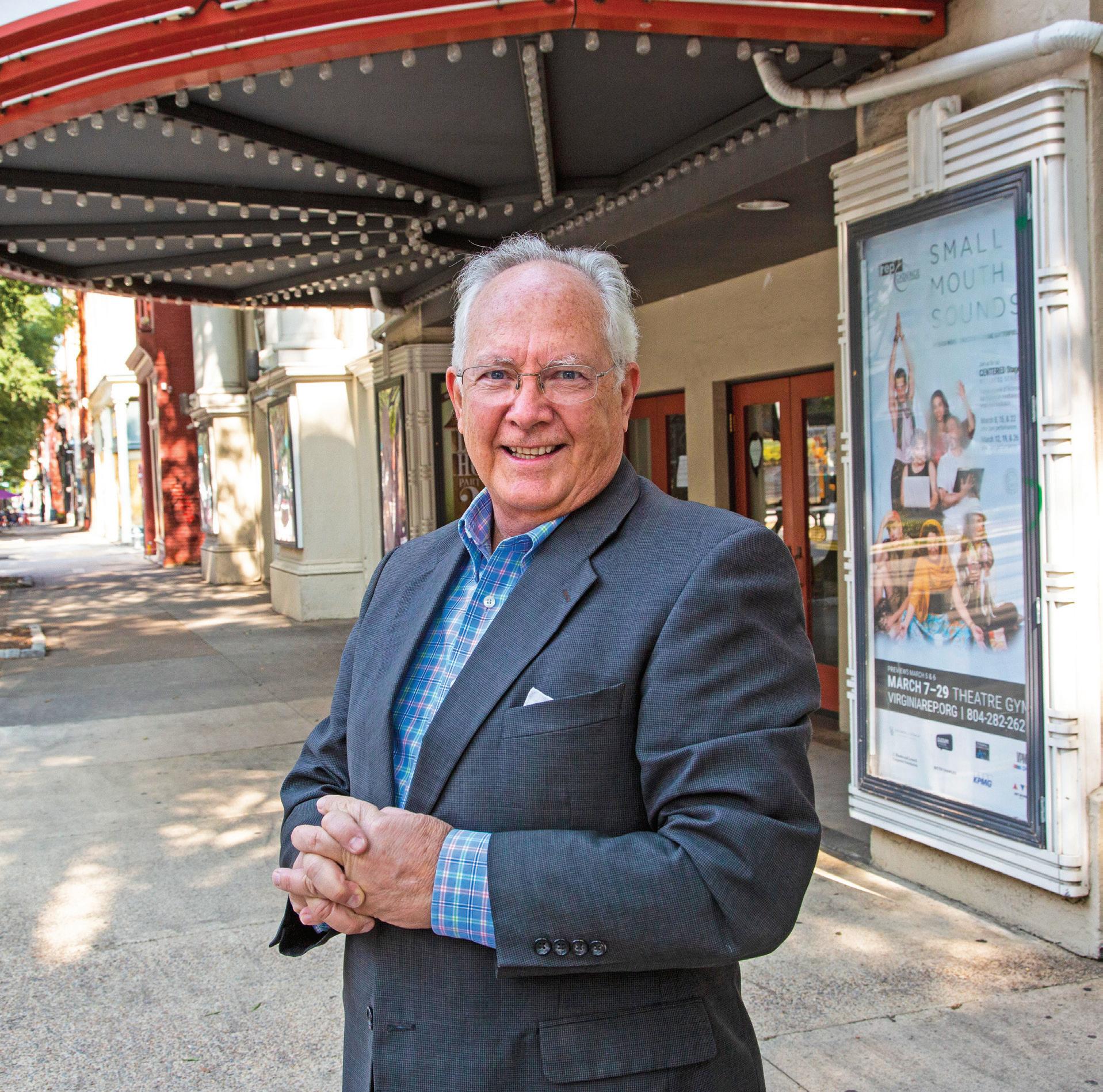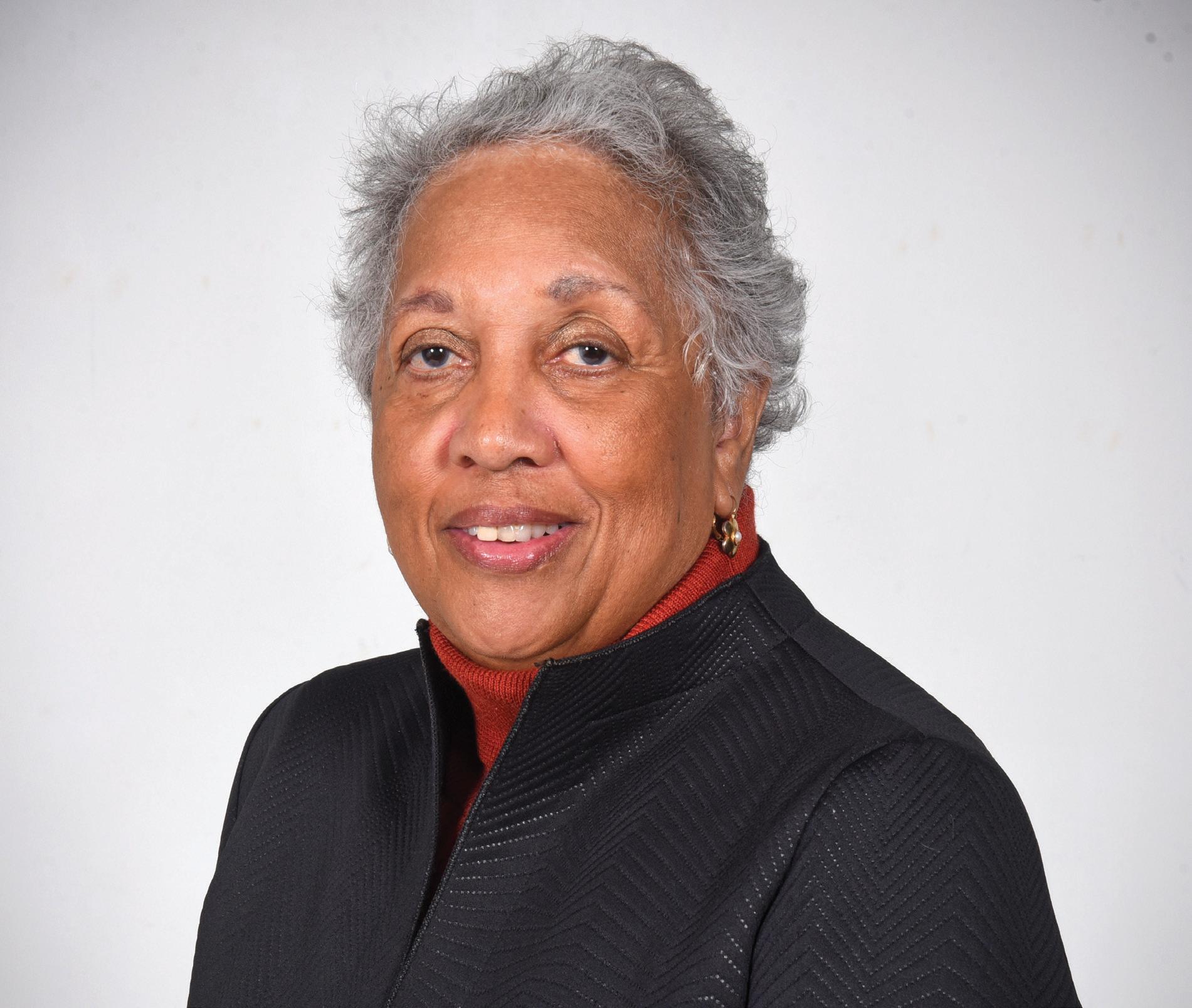
2 minute read
Change Agents
Phil Whiteway | Managing director and co-founder of Virginia Repertory Theatre
Forty years ago, I was 30 and the company Bruce Miller and I started was in its infancy. We were finding our way and building relationships. I didn’t grow up in Richmond but when I came here, I feel like Richmond saw itself as a quaint Southern city.
Over time that shifted and now I think it thinks of itself as a mid-Atlantic city. It is so much richer culturally; that includes the arts, the restaurant industry, the breweries. And even with the growth, I think it’s a very livable place. Just like it was for me, I see Richmond as a magnet drawing people to migrate south.
Where our theater is, on the cusp of Jackson Ward, it has come so far. People live down here, the neighborhood is walkable and there are so many restaurants. Many cities have not been successful in drawing people downtown, but we have.
I think that’s going to continue, investment is still occurring. There is cool development all around us and when these new places get built, they fill up.
What thoughts or perspectives do you have on Style Weekly and its place in Richmond history or culture?
That’s a tricky question. I miss the fact that you can pick it up when you’re at the grocery store or getting coffee. It was easy. But in general, arts coverage, and for us, theater critics, they play a vital role. It’s where people get their information. Some people will say they’re great. Others will say, ‘I can’t believe they said that. I can’t believe they printed that.’ But that’s the nature of reporting and media. I believe all coverage is good. It gets people talking and thinking. Style clearly has had its role and its place. I wish there were more of them, more critics and publications.
Jean Boone | Publisher of the Richmond Free Press

Style Weekly: How has Richmond changed in the past 40 years?
Jean Boone: My husband [Ray Boone], who was the editor and the lead player in this saga called “Let’s start the Richmond Free Press,” he would often observe that Richmond had the train on the tracks, but it just couldn’t get it moving. That was his metaphor, and I think that finally Richmond is moving the train on the track. Not without a lot of stops and bumps along the way, but there is obviously a generation of activists, Black and white, who are seeing the opportunities and seizing the opportunities that are here, and that’s a good thing.
When we moved [back to Richmond from Baltimore] in the end of ’91, Broad Street was a disaster. It was not very attractive, the landscaping was not there, on and on. Scott’s Addition was … here, but it was not as vibrant as it is now.
There’s energy in Richmond now, and that’s a good thing. Some of the more advanced ideas have been dissected and some rejected, some accepted, but there’s more thoughtful civic participation now than there was in the past.
Where will the city go in the future?
There has to be racial equity, there has to be inclusion, and










